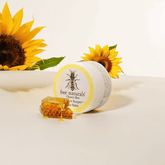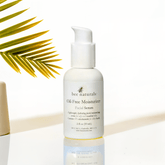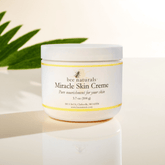Rating the Safety of Cosmetic Ingredients: EWG Reliable Resource?
Nine times out of ten, the average customer that strolls into a natural cosmetics store is an ingredient detective. They care about what ingredients have been used and have acquired some sort of general knowledge on what should and should not be included in product formulations. Thirsty for knowledge, this particular clientele often wonders what online resources are available to aid them in their product investigations.
The Importance of Multiple Resources
Bee Naturals owner Barbara Chappuis is frequently asked this question, and her answer aligns with the company’s mission: to educate customers to the point of becoming empowered consumers. While many owners would be inclined to greet an individual’s healthy curiosity with the hidden agenda of recommending their own products; her sincere recommendation is to draw upon multiple resources for the most accurate ingredient inquiries.
Everyone wishes that there were an easier answer. But unfortunately, there is not a singular website to turn to for all your questions. Some sites offer outstanding information on ingredients, but may not provide unbiased cosmetic product reviews. There are pros and cons to every website, but identifying the flaws can require a little extra digging. Educating the public on these positive and negative qualities cultivates a society of capable consumers. Consumers who can then rest assured that their decisions on safe cosmetics are based on scientific fact, rather than opinion.
Environmental Working Group (EWG) Skin Deep Database
It is tricky discussion to tackle, and only recently have people begun to publicly debate the credibility of the EWG. Not many businesses wish to be on this multi-million dollar company’s radar. But since this source is still a popular choice among customers as a cosmetic safety reference, it undoubtedly needs to be discussed.
Pros:
The EWG is a non-profit organization that has been around since 1992, at the tip of the Green Movement. The Group’s website describes their mission “to empower people to live healthier lives in a healthier environment” by using “breakthrough research and education.” The EWG’s Skin Deep Database was created to be a helpful resource to judge the safety of cosmetics. By searching a product name or specific ingredient, customers are able to see a toxicity rating and a brief description of the chemicals used, as well as their side effects. The ratings are given a number between one and ten, ten being the most dangerous. Obviously, the mission is something we can all stand behind, and the idea of creating a tool to help educate customers on what is in their favorite products is certainly something to be admired.
Cons:
Perhaps the number one flaw with the EWG’s Skin Deep Database is that it is not backed by much science at all. Most of the research is merely opinion, with no documented data to support the number ratings of a product’s ingredients. Want proof? Look no further than the EWG’s list of “Best Moisturizer’s with SPF.” This list is the EWG’s pick of 125 sunscreens that have been deemed safe and effective. On the list is Yes to Cucumbers Daily Calming Moisturizer, SPF 30. This product is given the proud rating of 1, but the reasoning behind this score makes no logical sense.
In the ingredient breakdown, numerical scores are given to each ingredient, and below each number, one word is written to describe the amount of scientific data supporting each score. All 18 ingredients found in the moisturizer were given a safe numerical score, never exceeding a 2. As for the amount of data to support those ratings, only 2 ingredients, water and sucrose, had a decent amount of data to support the EWG’s scores. The other 16 ingredients had “fair,” “limited,” or “zero” amount of data to back up safety scores.

Clearly, the site has some work to do with supporting the strong claims it has made regarding the safety of its featured products. This flaw is unfortunately consistently found across the database, which features reviews like the one above on approximately 79,000 products.
The EWG is a broad organization, and Skin Deep makes up only a small portion of the organization as a whole. While some of the site’s information can be helpful, consumers should not use it as a sole source of information to determine the safety of cosmetic products.

Bee Naturals Resource Recommendations
Here is a list of helpful resources, as well as their areas of expertise:
- Cosmetic Ingredient Review – https://www.cir-safety.org/ingredients
- This site is helpful for understanding the chemistry behind ingredients and their safety. All information is backed by scientific documentation made visible to viewers.
- Cosmetics Info – https://www.cosmeticsinfo.org
- This site is beneficial for those looking to search for products by name to get unbiased, science-based reviews regarding the safety of your favorite cosmetics.
- The Beauty Brains – https://thebeautybrains.com/about
- Written by two cosmetic chemists, this blog seeks to answer any all questions regarding cosmetic products.
- CosDNA – https://www.cosdna.com
- This database allows you to search by product name or ingredient. The site details an ingredient’s function, scores the ingredient’s chance of causing acne and irritation, as well as gives the ingredient a safety rating.







Leave a comment
Please note, comments need to be approved before they are published.